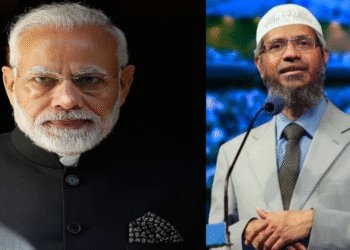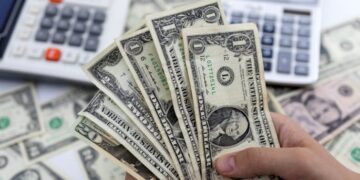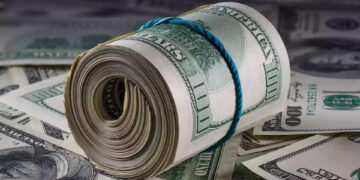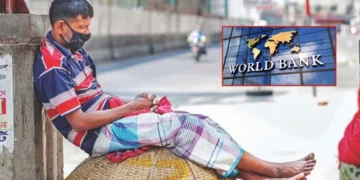Shakib Al Hasan is not just a cricketer in Bangladesh. He is a national icon, a world-class all-rounder, and a role model for millions. But recently, his name has been making headlines not for cricketing brilliance, but for a major financial scandal.
In April, the Bangladesh Securities and Exchange Commission (BSEC) published its enforcement action report, revealing that Shakib has been fined Tk 22.6 million for his involvement in manipulating the share prices of Sonali Paper and Board Mills. He is among 13 individuals and entities fined a total of Tk 290 million for orchestrating artificial price hikes in the stock market.
According to the BSEC investigation, the manipulation occurred during two separate periods from September 30 to October 28 and from December 1 to December 31 in 2021. During these periods, the price of Sonali Paper’s shares rose by an astonishing 126 percent, reaching Tk 957.70 per share.
This wasn’t a coincidence. A syndicate of investors, including Shakib, was found to have deliberately increased the share price to attract public interest and then sell off their holdings for massive profits. The BSEC report shows that this syndicate made approximately Tk 336.3 million in actual profit and had an additional Tk 550 million in potential profit from the inflated prices.
This kind of manipulation is a serious violation of the country’s securities laws. For a public figure like Shakib, who had previously served as a goodwill ambassador for BSEC, the revelation has sent shockwaves across the country.
Who else was involved?
Shakib was not alone. A list of individuals and organizations was published by BSEC, showing a highly coordinated effort. Those fined include:
-
Abul Khair (also known as Hiru)
-
Kazi Sadia Hasan
-
Abul Kalam Matbor
-
DIT Cooperative
-
Kazi Farid Hasan
-
Kazi Fuad Hasan
-
Kanika Afroze
-
Sajed Matbor
-
Mohammad Bashar
-
Monarch Holdings
-
Monarch Hotel and Resorts
-
SoftAvion
-
Javed A Matin
These names indicate that the incident was not an isolated act of negligence but a well-organized syndicate that exploited the market for personal gain.
Shakib’s response: ignorance or indifference?
In a written statement submitted to the commission, Abul Khair spoke on behalf of Shakib, saying that-
“I sincerely apologize for this unintentional mistake. It was not deliberate but occurred due to a lack of awareness. I will be more careful in the future.”
While some may appreciate the humility in this statement, the reality remains that ignorance is no defense under the law. Specially for someone of Shakib’s stature, this kind of excuse is both disappointing and alarming.
Read More: Japan-Bangladesh Relations Strengthen with Bold New Cooperation Ahead of Prof Yunus Visit Tokyo
This is not the only case BSEC revealed in April. The commission fined 24 individuals Tk 540 million for manipulating the shares of four companies. Among the major findings:
-
Sonali Life Insurance: Former president of the Bangladesh Merchant Bankers Association Sayedur Rahman and his associates were fined Tk 19.7 million.
-
Gemini Sea Food: Five individuals were fined Tk 38.5 million for stock manipulation.
-
Asia Insurance: Abul Khair and his associates faced an additional fine of Tk 190 million for another scheme of artificial price hikes.
Clearly, Shakib’s case is only one example in a broader pattern of market manipulation and financial misconduct.
The stock market is meant to be a place of opportunity where people invest their savings for a better future. When powerful individuals manipulate prices and misuse their influence, it undermines the entire system. Ordinary investors many of whom put in their hard-earned money suffer the most.
For someone like Shakib, whose influence stretches far beyond cricket, such involvement sends a dangerous message. Fans and followers trust their idols not just for performance, but for integrity. When that trust is broken, the damage goes deeper than money it erodes hope and public faith.
Shakib may have apologized, and the fines may have been paid. But the real question is whether this incident will bring about any meaningful change. Will public figures be more cautious about how they invest? Will regulators strengthen their oversight? Will retail investors feel safer in the market again?
The stock market of Bangladesh has long struggled with trust issues. Incidents like these deepen the crisis, but they can also serve as a turning point. If accountability is enforced fairly and transparently regardless of status or fame—it can rebuild confidence.
Shakib Al Hasan’s punishment is not just a financial penalty. It is a symbol of a greater need for transparency and ethics in Bangladesh’s financial ecosystem. His involvement in stock manipulation might have been out of ignorance, but the consequences are serious.
This story is a reminder to everyone celebrities, investors, and institutions alike that no one is above the law. In a fair system, status offers no immunity. Only honesty and responsibility matter.
















